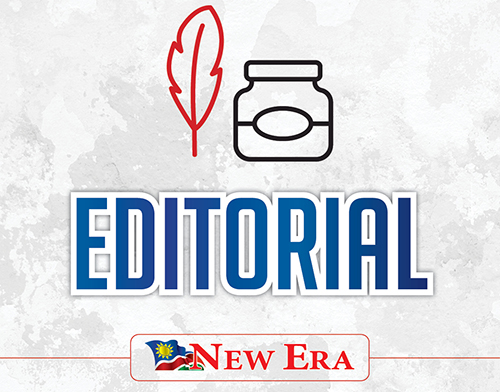Heroes come in different shapes and sizes.
THE question that lingers, however, is who is a hero?
By far, American actor and activist, Christopher Reeve put it best: “A hero is born among a hundred, a wise man is found among a thousand, but an accomplished one might not be found even among a hundred thousand men. A hero is no braver than an ordinary man, but he is brave five minutes longer.”
August 26 is upon us once again. Namibians from all walks of life will converge at the Heroes Acre shrine to pay respects to the nation’s gallant sons and daughters, who in their different ways, miniscule and gigantic, known and unknown contributed and continue contributing towards the betterment of our nation.
This week, a New Era article titled ‘Pair of eyes, hands for blind grandparents’ about a 27-year-old woman, Minnette Rista from Rehoboth, reminded us once again that heroes are ordinary people.
Leaving her marital home and electing not to seek employment, formal or informal, Rista chose a path of compassion and selflessness, sacrificing her youthful years to look after her visually impaired grandparents, aged 77 and 75.
She took on this task at 22, with her future still way ahead of her.
It is sometimes through what many perceive as ordinary acts, like Rista’s, that catapult individuals to hero’s status.
But as Heroes’ Day looms, public opinion is divided on who a hero is and if at all the day warrants commemorations, rightly so.
However, some within our midst, conveniently so, have chosen to choose certain parts of our history as their nexus to what constitutes a Namibian hero.
This is disingenuous.
History must never be distorted for political or other expediencies. It must be taught and told as it is, for like cream, the truth will always rise to the surface.
While the liberation struggle, which was detonated by events of 26 August 1966, when eight helicopters of the apartheid South African Defence Force attacked guerrilla fighters at Omugulugwombashe, many moons prior to and after, equally produced heroes and heroines.
As such, all must be celebrated without one being seen as more important than the other, in fostering an inclusive and progressive Namibian house.
More often than not, many Namibians feel left out of Heroes’ Day, as some view it as a political event, meant to glorify some, to the exclusion of others. And for as long as the status quo continues, some Namibians will continue treating the day, just like any other.
While Heroes Day remains an important day on the Namibian calendar, it is perplexing that to this day, no day is set aside to commemorate the 1904-08 genocide that colonial Germany meted out against the Nama and OvaHerero people, three decades after our nation’s political independence. As such, it doesn’t come as a surprise when certain quarters of this populace feel left out on Heroes Day, despite it being the ultimate day where heroes are celebrated, past, present and future.
As such, our leaders need no reminder that the enactment of ‘Genocide Remembrance Day’ is long overdue.
Despite our differences, however, nothing should downplay the significance of Heroes’ Day, as many Namibians paid the ultimate prize with their lives, for their blood continues to water our freedom and pathway towards total economic emancipation.
As such, it would be a travesty and spitting on the graves of those who dared to rise against the successive repugnant and oppressive regimes, to protect their motherland, Namibia.
As we mark another Heroes’ Day, let us celebrate our heroes and heroines, in whatever form they come, be it committed parents who put everything on the line to raise their children; the men and women in uniform who ensure our safety and territorial integrity; the teachers; cleaners; street vendors and journalists, who have dedicated their lives to informing, educating and entertaining and our sports men and women, through whom we find inspiration when all appears to be doom and gloom.
May all our heroes be counted.


